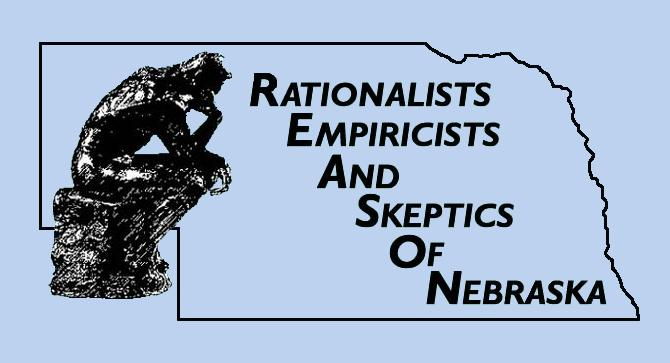Defining Religion
Background for our Discussion, Lincoln Forum on Science and Religion, Thursday, Jan. 22, 2004, Bennett-Martin Library, 7:00-8:30 p.m.
Introduction: This is an attempt to define not a religion, nor the ideal of religion, but religion as it exists in human affairs. It is a notoriously difficult task. In undertaking it, we are not aiming to pass judgement on the validity of any particular religion's claims or the value of religion in human societies. Our goal is to identify the necessary and sufficient elements of religion in such as way that we will include all those instances that are generally recognized as religion, and exclude phenomena that are generally or properly considered something else. Based on the work the Forum did last fall, and taking into account comments received since, I offer a revised definition below. Before that, however, some context and a refresher on the definitions that have been offered in the past.
Other Definitions: [Abridged and revised version of what I sent you last fall.]
1) Spiritual (Western)
From Wikipedia: The word religion derives from the Latin word religare, meaning "to join, or link" and classically understood to mean the linking of human and divine.
Webster's Ninth Collegiate lists its primary definition of religion this way:
1 a (1): the service and worship of God or the supernatural
2) Anthropological
"Religion is present in a society when belief in supernatural agencies or forces is present , and absent when the belief is absent. Everything else is optional practice, doctrine or ritual." (Jack Goody)
3) Functionalist
Emile Durkheim, generally considered the "father of sociology," had a great influence on perceptions of religion as a socially functional phenomenon. His most famous stab at a definition is:
"A religion is a unified system of beliefs and practices relative to sacred things … which unite into one single moral community called a Church, all those who adhere to them." (The Elementary Forms of Religious Life, 1915)
Evolutionary biologist David Sloan Wilson regards religions as a group-level adaptation that, (to quote Natalie Angier's paraphrase), "helped make groups of humans comparatively more cohesive, more cooperative and more fraternal, and thus able to present a formidable front against bands of less organized or unified adversaries." (See Darwin's Cathedral, 2002)
4) Parasitic
These views of religion tend to see it as a phenomenon that drains resources away from its followers, either to the benefit of someone else or to the benefit of the religion itself. Biologist Richard Dawkins simply defines religions as "viruses of the mind."
Psychologist Susan Blackmore regards religions as "memeplexes" -- aggregates of ideas that compete with other aggregates of ideas for survival and reproduction in human minds. Although this can involve incidental benefits to followers (some dietary laws in Judaism probably saved lives), on the whole she regards religion as parasitic:
"Religions build theories about the world and then prevent them being tested. Religions provide nice, appealing and comforting ideas and cloak them in a mask of 'truth, beauty, and goodness'. The theories can then thrive despite being untrue, ugly, or cruel..."
5) Hybrid:
Sociologists Rodney Stark and William Sims Bainbridge considers religion as a extension of economic behavior. They define religion as "human organizations primarily engaged in providing general compensators [promises of rewards] based on supernatural assumptions." (Future of Religion, 1985)
Writer H.L. Mencken's quasi-spiritual-functional definition:
"[I]ts single function is to give man access to the powers which seem to control his destiny, and its single purpose is to induce those powers to be friendly to him. That function and that purpose are common to all religions, ancient or modern, savage or civilized, and they are the only common characters that all of them show. Nothing else is essential. (1930)
Method and Disclaimer: We seek reasonable consensus on this question. In hopes of achieving that, I propose that we engage in discussion, consider amendments (if any), and then have a vote. The standard for consensus which I propose is supermajority of two-thirds of those who attend the meeting. The same supermajority will be required for passage of any amendments. It may be difficult or impossible to agree on a definition this way, but it would be better to fail, I believe, than to engender a split in the Forum.
If such a supermajority emerges, it will not be binding on anyone participating in the forum to adopt the definition personally. While the time for expressing disagreement may be limited, the right of dissent will always be respected in this Forum.
Proposed Definition: Religion -- a system of institutional, cultural and personal responses to beliefs about human affairs in relation to a reality beyond the merely material.
Discussion: If successful, this definition will identify the major and minor religions that we already recognize, and exclude intellectual and social phenomena such as evolution, science, secular humanism, and commerce, which are sometimes misidentified as religion.
Does it work? I will certainly defend it, but even I must admit that there are gray and troubling areas. Is non-theistic Buddhism embraced by this definition? Is it justifiable to imply that theology ("beliefs about a reality…") causes religion? Can we distinguish mathematics from religion under this definition? What about philosophy? I expect you'll have some tough questions to add to this list. Look forward to a vigorous discussion … as usual.
